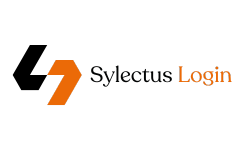The Future of Sylectus: Trends in EdTech
In recent years, the landscape of education has undergone a profound transformation, largely driven by advancements in technology. Educational Technology, or EdTech, has emerged as a key enabler in facilitating learning experiences that are more engaging, accessible, and personalized. Among the prominent players in this field is Sylectus, a company at the forefront of innovating EdTech solutions. In this article, we’ll delve into the future trends shaping the evolution of Sylectus and the broader EdTech industry.
Personalized Learning
One of the most significant trends in EdTech is the move towards personalized learning experiences. Traditional one-size-fits-all approaches to education are being replaced by adaptive learning platforms that tailor content and pacing to the individual needs of each learner. Sylectus is anticipated to further enhance its offerings in this area, leveraging data analytics and machine learning algorithms to deliver highly customized learning paths for students.
Immersive Technologies
Another exciting trend in EdTech is the integration of immersive technologies such as virtual reality (VR) and augmented reality (AR) into educational experiences. These technologies have the potential to transform learning by providing immersive simulations, virtual field trips, and interactive learning environments. Sylectus is poised to explore the possibilities of VR and AR in delivering hands-on learning experiences across various subjects, from science and mathematics to history and literature.
Gamification
Gamification has emerged as a powerful tool for enhancing student engagement and motivation. By incorporating game elements such as rewards, challenges, and leaderboards into educational activities, EdTech platforms like Sylectus can make learning more enjoyable and interactive. The future of Sylectus may involve the development of gamified learning modules that encourage students to actively participate and progress through their studies.
Artificial Intelligence
Artificial intelligence (AI) is revolutionizing the way education is delivered and managed. From intelligent tutoring systems to automated grading and assessment, AI-powered technologies have the potential to streamline administrative tasks and provide real-time insights into student performance. Sylectus is likely to invest in AI-driven solutions that optimize learning outcomes, automate administrative processes, and provide personalized recommendations to students and educators.
Collaborative Learning
Collaborative learning platforms are becoming increasingly popular in both traditional and online education settings. These platforms enable students to collaborate on projects, share ideas, and learn from each other in a social and interactive environment. Sylectus may incorporate collaborative features into its platform, allowing students to engage in group discussions, peer reviews, and collaborative assignments, thereby fostering a sense of community and teamwork.
FAQS
What are the current trends in EdTech?
The current trends in EdTech include personalized learning, gamification, virtual reality, and artificial intelligence. These technologies are revolutionizing the way education is delivered and enhancing the learning experience for students.
How is Sylectus shaping the future of EdTech?
Sylectus is at the forefront of EdTech innovation by providing cutting-edge solutions that empower educators and students. With its advanced learning management system and interactive tools, Sylectus is revolutionizing the way education is accessed and delivered.
What are the benefits of incorporating technology in education?
Integrating technology in education offers numerous benefits, such as increased engagement, personalized learning experiences, access to a vast array of educational resources, improved collaboration, and enhanced student outcomes. It prepares students for the digital world and equips them with essential 21st-century skills.
How can EdTech improve student learning outcomes?
EdTech can improve student learning outcomes by providing personalized learning experiences, adaptive assessments, interactive content, and real-time feedback. It enables students to learn at their own pace, reinforces concepts through interactive exercises, and tailors instruction to individual needs.
What challenges does the future of EdTech face?
The future of EdTech faces challenges such as ensuring equitable access to technology, addressing privacy and security concerns, and overcoming resistance to change. It is crucial to bridge the digital divide and ensure that all students have equal opportunities to benefit from EdTech advancements.
How can educators effectively integrate EdTech into their teaching practices?
Educators can effectively integrate EdTech into their teaching practices by undergoing professional development, exploring different tools and platforms, collaborating with colleagues, and staying updated with the latest trends. It is essential to align EdTech with instructional goals and leverage its potential to enhance teaching and learning.







